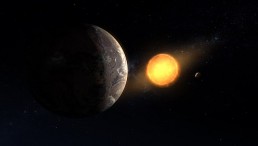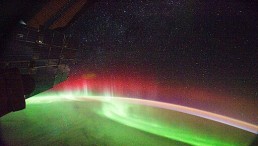environment
Climate Change Will Send Millions To Poverty By 2030
Earth: Home to More than Three Trillion Trees
Evacuation Orders and the Eruption of Japan's Mount Shindake Volcano
Thousands of Endangered Antelope Deaths Have Scientists Investigating a Serious Concern
Parasitic 'Dementor' Wasp Leaves Prey Without Free Will
How SeaWorld Is Responding to the Santa Barbara Oil Spill And What They're Doing to Help
Satellite Data Reveal an Alarming Trend in Antarctica
Finding the Origins of Chinook Salmons Through the ‘Otolith’ of the Inner Ear
Seismic Changes on Hawaii’s Kilauea Volcano Prompt Warnings And New Research
‘Brainy’ Robots May Revolutionize Underwater Exploration
How's the Carbon Stacking Up? NOAA Says CO2 Has Passed Its Mark
Heavy Rain and Twisters Sweep the Midwest
A Wintry Affair—How Oregon's Lost Lake Disappears
AS GLOBAL TEMPERATURES RISE, SPECIES MAY PLUMMET
Most Popular

‘Morbid’ Alien Theory: Extraterrestrials Haven’t Contacted Humans As They’re Destroyed by Gamma-Ray Bursts

Can Animals Give Birth to Twins? How Do They Bring Forth Multiple Offspring?

Why Can’t We See Ultraviolet Light? Exploring the Limits of Human Vision

Constipation Explained: Here's Why You May Find It Hard To Pass Stool at Times





